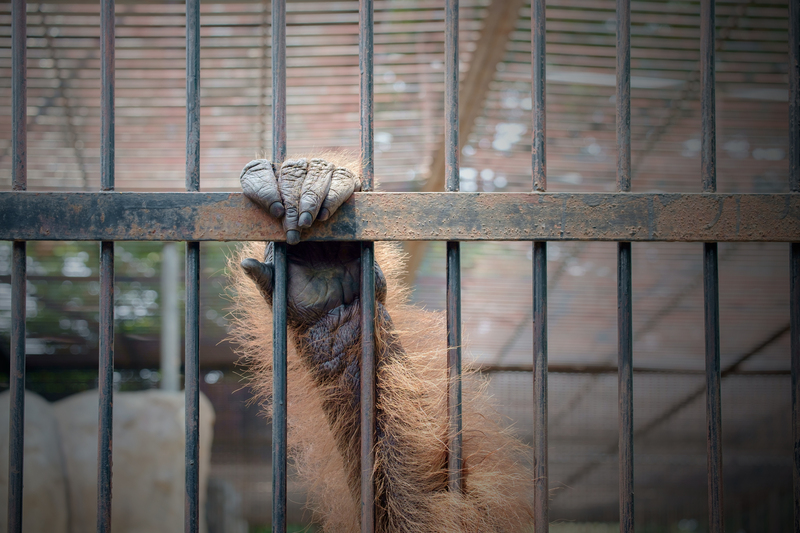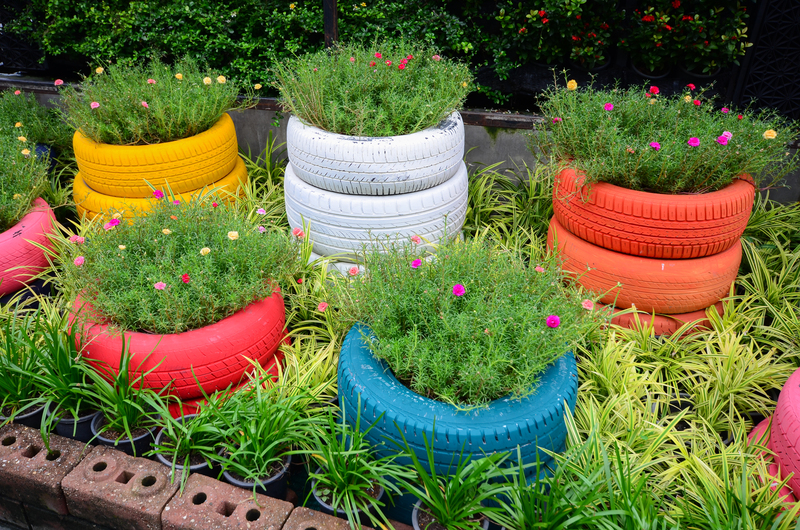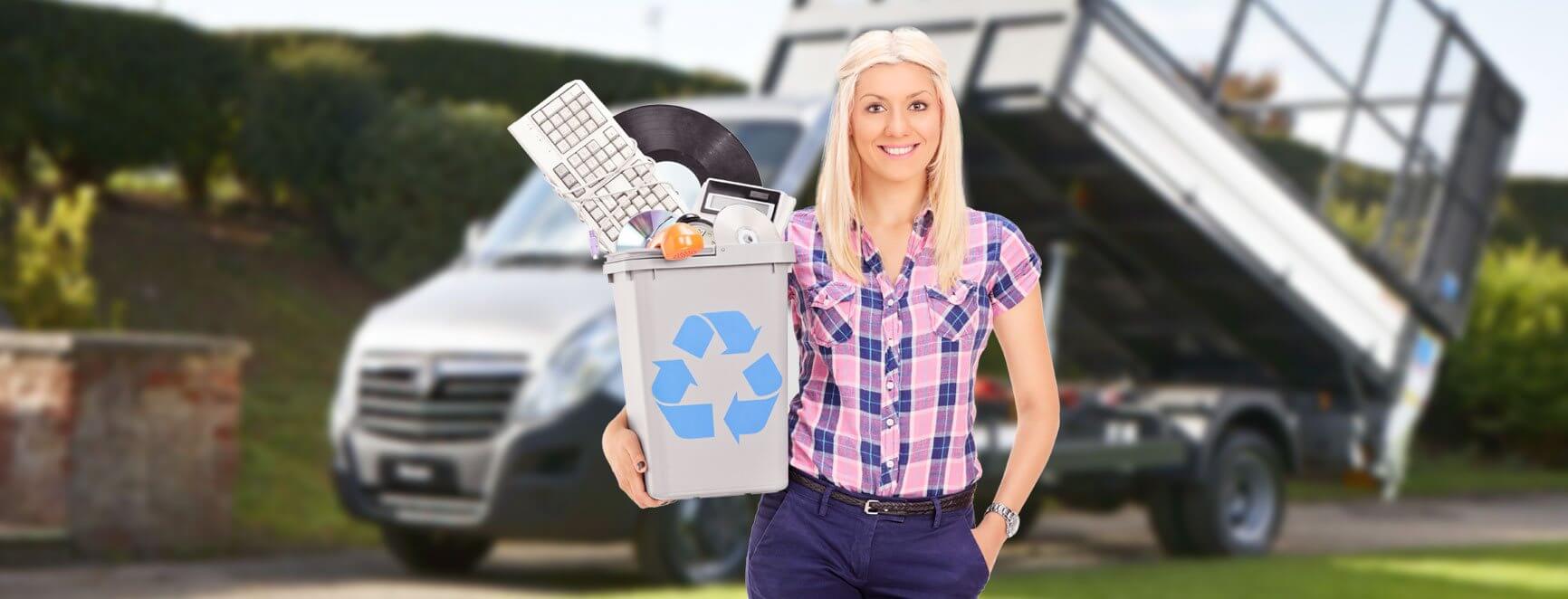Getting Rid of Hard Rubbish Properly
Posted on 25/03/2025
Disposing of hard rubbish can be a daunting and challenging task. This term encompasses large waste items such as furniture, mattresses, appliances, and electronic waste, which cannot be discarded through standard waste collection systems. Proper disposal is crucial to mitigate environmental impact, adhere to legal requirements, and promote recycling and reusability. In this comprehensive guide, we will explore the steps and best practices for getting rid of hard rubbish properly.
Understanding Hard Rubbish
Hard rubbish refers to those bulk items that are too large or heavy for regular trash bins. This includes furniture, mattresses, white goods (like refrigerators and washing machines), electronics, and other bulky waste. Unlike household garbage, these items require special attention due to their size, weight, and potential environmental hazards.

Why Proper Disposal is Important
Improper disposal of hard rubbish can lead to environmental degradation, resource wastage, and increased landfill burdens. In many regions, specific laws and guidelines govern waste management to promote sustainability:
1. Environmental Impact: Many hard rubbish items contain hazardous materials. Electronics, for example, have metals like mercury and lead, which, if not disposed of properly, can leach into the soil and water sources.
2. Resource Recovery: Items like metals, plastics, and certain electronics contain valuable materials that can be recycled. Proper sorting and recycling reduce the demand for raw materials.
3. Legal Compliance: Many municipalities have specific regulations around bulk waste disposal. Adhering to these rules can prevent fines and legal issues.
Methods for Proper Disposal
Given the complexities associated with hard rubbish, a variety of disposal methods are available. These methods vary depending on the nature of the waste, environmental considerations, and local regulations.
1. Curbside Collection
Many municipalities offer curbside hard rubbish collection services. These services typically occur on scheduled days where residents can place specified large waste items outside for collection.
- Advantages: Convenient for households; municipalities often ensure proper recycling and disposal.
- Considerations: There may be restrictions on the type and number of items collected. Check local guidelines for specifics.
2. Transfer Stations and Landfills
Residents can transport hard rubbish to designated transfer stations or landfills.
- Advantages: Direct transfer of waste; facilities often sort and process waste appropriately.
- Considerations: May involve fees; additional labor for transportation.
3. Hiring Skip Bins
Skip bins are large containers rented from waste management companies for the temporary collection of bulk items.
- Advantages: Suitable for large-scale cleanouts or renovations; professional handling ensures compliance with disposal laws.
- Considerations: Rental costs; requires sufficient space for the bin placement.
Recycling and Reusing Hard Rubbish
Recycling and reusing hard rubbish can significantly reduce landfill waste and conserve natural resources. Here's how you can contribute to this effort:
1. Recycling Centers
Many communities have recycling centers that specialize in processing specific types of hard rubbish.
- Advantages: Eco-friendly; responsible handling of materials.
- Considerations: May need to sort items prior to drop-off; check for any associated fees.
2. Donation and Reuse
Before disposing of functional items, consider donation or selling.
- Advantages: Extends the life of usable items; supports community members in need.
- Options: Charities, second-hand stores, and online marketplaces.
3. Specialized Recycling Programs
Certain items, like electronics or hazardous materials, require special recycling programs.
- Advantages: Ensures safe disposal of hazardous substances; often provided by manufacturers or retailers.
- Considerations: May require specific drop-off locations.
Best Practices for Hard Rubbish Disposal
To make the process smoother and more environmentally responsible, follow these best practices:
1. Plan Ahead
- Schedule: Check your local council's collection calendars and plan accordingly.
- Transportation: Arrange for transportation to transfer stations or recycling centers if required.
2. Separate Waste
- Categorize: Sort materials like metals, electronics, and general bulk waste separately for easier recycling and handling.
- Labeling: Label items clearly if they contain hazardous materials.
3. Follow Local Guidelines
- Compliance: Always adhere to local regulations regarding the types and quantities of hard rubbish.
- Education: Stay informed about any changes in waste disposal policies.
4. Repurpose
- Creativity: Consider upcycling old furniture or repurposing materials creatively within your home.
- Community Initiatives: Join local community groups focused on recycling and repurposing.

Challenges and Solutions
The process of hard rubbish disposal is not without its challenges. Awareness and proactive measures can help in overcoming these hurdles.
1. Limited Collection Services
- Scenario: Limited municipal collection days or prohibited items.
- Solution: Utilize alternative methods such as renting a skip bin or visiting a transfer station.
2. Environmental Concerns
- Scenario: Uncertainty about the environmental impact of disposal methods.
- Solution: Research and prefer options with verified sustainable practices like specialized recycling programs.
3. Costs
- Scenario: Disposal fees and associated costs.
- Solution: Compare different services and find cost-effective options, including free community recycling days or donation drives.
Conclusion
Proper disposal of hard rubbish is an essential component of responsible waste management. By understanding the nature of hard rubbish, exploring various disposal methods, and adhering to best practices, individuals can contribute significantly to environmental sustainability. Whether through recycling, donating, or utilizing municipal services, the goal is to ensure that bulk waste is handled responsibly, mitigating its impact on the environment. Remember to plan ahead, stay informed about your local regulations, and explore creative ways to repurpose items where possible. By doing so, you play a vital role in preserving our planet for future generations.





